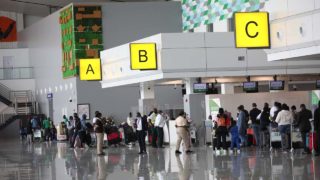
Given their direct contacts with air travellers, airlines and regional bodies have urged governments to treat aviation employees as essential workers as the COVID-19 vaccination campaign kicks off in different parts of the world.
The International Air Transport Association (IATA), the Latin American and Caribbean Air Transport Association (ALTA), Airports Council International Latin America and the Caribbean (ACI-LAC) and the Civil Air Navigation Services Organisation (CANSO), jointly said the aviation workers are just as central to the disease prevention as the health workers.
The industry’s call on governments aligns with the World Health Organisation’s Strategic Advisory Group of Experts (SAGE) on Immunisation Proposed Roadmap for Prioritising Uses of COVID-19 Vaccines.
This outlines priority populations for vaccination based on epidemiologic settings and supply scenarios. Within this framework, SAGE has included transportation workers alongside other essential sectors outside health and education.
IATA’s Regional Vice President for the Americas, Peter Cerdá, said it would require the equivalent of 8,000 Boeing 747 freighter aircraft to distribute vaccines globally.
“It is, therefore, essential that we have the qualified workforce in place to ensure a functioning logistics chain,” Cerdá said.
Director-General of ACI-LAC, Dr. Rafael Echevarne, added that airports are key hubs in the global distribution chain of vaccines and equipment in the fight against COVID-19.
He said operational airport personnel interact with a multitude of stakeholders to facilitate the rapid and safe delivery of large volumes of doses of the vaccines; whilst ensuring the recovery of passenger services, which are essential for the social and economic development of our countries.
Executive Director & CEO ALTA, José Ricardo Botelho, said although it had been demonstrated that it was possible to resume activities following the appropriate protocols, “we are confident that vaccination will allow everyone to feel safe in different environments and, mainly, will allow us as a society to recover countless economic sectors and millions of jobs that are currently depressed”.
“Throughout this year, the aviation industry has made extraordinary efforts to remain viable and continue to provide an essential service to the population. The agile adoption of biosafety protocols allowed us to resume travel and slowly begin the recovery of connectivity that generates opportunities, and that furthermore will enable the distribution of vaccines everywhere, even remote places.
“Considering industry workers as essential during vaccination campaigns is key to strengthening these efforts that will translate into economic and social well-being for the population. We see that pilots in the United States will receive the vaccine and we call for our regions to include all aviation personnel in the campaigns,” Botelho said.
IATA’s recent 76th Annual General Meeting (AGM) also unanimously adopted a resolution in which its members asked governments to ensure that aviation staffers are prioritised for COVID-19 vaccination, once safe and effective treatments become available and health care workers and vulnerable groups have been protected.
The AGM also reinforced the vital role of air transport in facilitating the global response to the pandemic, including the timely distribution of medicines, testing kits, protective equipment and eventually vaccines around the world.
END

Be the first to comment